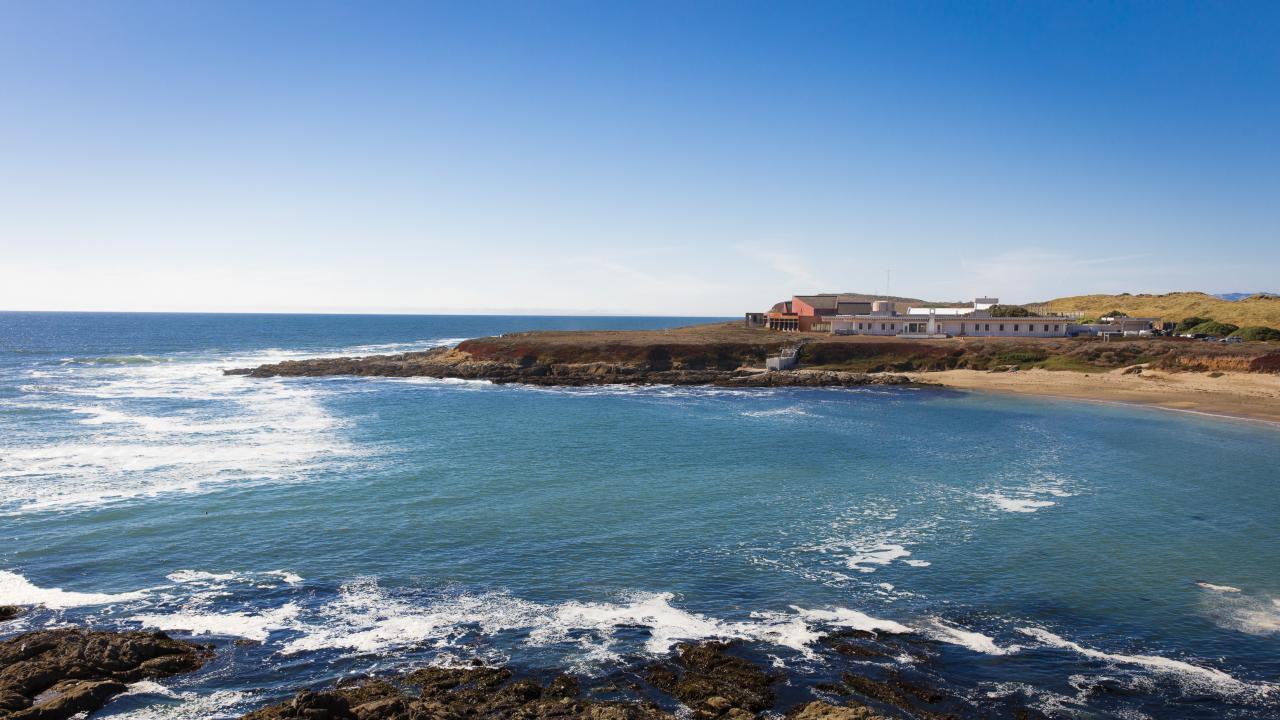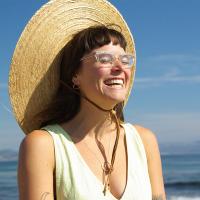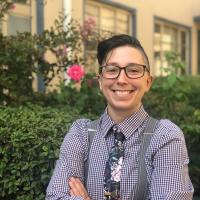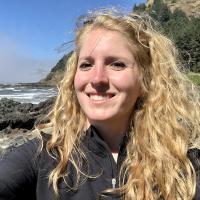
Humanities Scholars Win Bilinski Fellowships at the Bodega Marine Laboratory
Three UC Davis doctoral students have been awarded funding to conduct research on oceans and coastlines that will further their dissertation work and culminate in innovative public-facing projects.
Alison Maas (English), Margaret A. Miller (English), and Maya Weeks (Geography), have each received Russell J. and Dorothy S. Bilinski Fellowships at Bodega Marine Laboratory, which are awarded to promising doctoral students for collaborative and cross-disciplinary research that bridges the humanities, social sciences, and natural sciences. Fellows receive an award of $20,000 and a quarter-long residency at the UC Davis Coastal and Marine Sciences Institute’s Bodega Marine Lab (BML).

Maya Weeks, a poet, PhD candidate in Geography, and current graduate student researcher at the Davis Humanities Institute, will spend her spring quarter residency finishing a book of poetry titled Hold Fast. The title of the collection, Weeks explained, refers to the part of a seaweed plant that anchors it to rocks. The phrase also serves as an entry point for a critique of disposability culture and a way to explore “questions of holding on,” said Weeks.
Weeks’ research focuses on “marine debris as a form of capital accumulation and gendered and racialized violence” and includes both creative and critical components. At the BML, she said, she is excited to return to site-specific creative research and explore the ways in which her poetry will be informed by the location.
In addition to looking at waste and collecting plastics, Weeks said, fieldwork in Bodega Bay will likely involve “inhabiting the location, and seeing what relationship I have to the land and the water. I imagine spending a lot of time in sand and rocks and listening. After I do that for 20 minutes or so, my brain starts to feel like the rocks have rattled out of it.”
Miller, a PhD candidate in English whose research analyzes the ramifications of wetland drainage in the 19th century, also plans to use the BML residency to incorporate a contemporary, personal perspective into their project. Wetlands, Miller’s dissertation argues, have historically been sites of refuge for queer people, indigenous people, enslaved people, and others inhabiting bodies deemed non-normative.

“Because wetlands are environmental bodies in the world that refuse categorical distinction, they allow us to see how differentiations and binarisms are actually not the most ‘natural’ thing,” Miller explained. “As a trans* scholar,” they added, “being able to experience these spaces in real time is an important part of my own understanding of transness.”
Miller plans to collect photos and video during socially-distanced fieldwork guided by collaborators from the graduate group in Ecology. The project will culminate in a digital mixed-media exhibit for the Manetti Shrem Museum to be displayed in the spring.
Maas is a PhD student in English whose recent work on literary estuaries “is situated in the brackish intersections between river studies and oceanic studies.” She will use the fellowship period to conduct interviews for a podcast on California’s coastal erosion crisis. That research will be foundational to Maas’s dissertation, which focuses on how shifts in shipping and infrastructure projects shaped coastlines in the early 20th century.
While Maas uses literary texts to understand historical perspectives on coastal erosion, she sees cross-disciplinary work at the BML as an opportunity to connect that history with the present. “Talking to scientists, activists, and policymakers doing work related to coastal erosion will be important for understanding how a tracked-back perspective can help reframe the contemporary crisis,” Maas said.

Elise Fairbairn, PhD, Associate Specialist at the UC Davis Bodega Marine Laboratory and the administrator of the Bilinski Fellowship program there, stated that the cross-disciplinary and public-facing nature of each of these projects is consistent with the mission of the Coastal and Marine Sciences institute and the Bodega Marine Lab.
“Graduate students with cross-disciplinary training will help us meet the challenges that face a sustainable coastal environment,” Fairbairn said, adding that funding from the Bilinski Educational Foundation makes possible projects and collaborations that would often otherwise not be possible. “These innovative fellowships provide an opportunity for graduate students in the humanities and the marine sciences to broaden the impacts of their dissertation and help train them to become tomorrow’s ocean leaders.”
